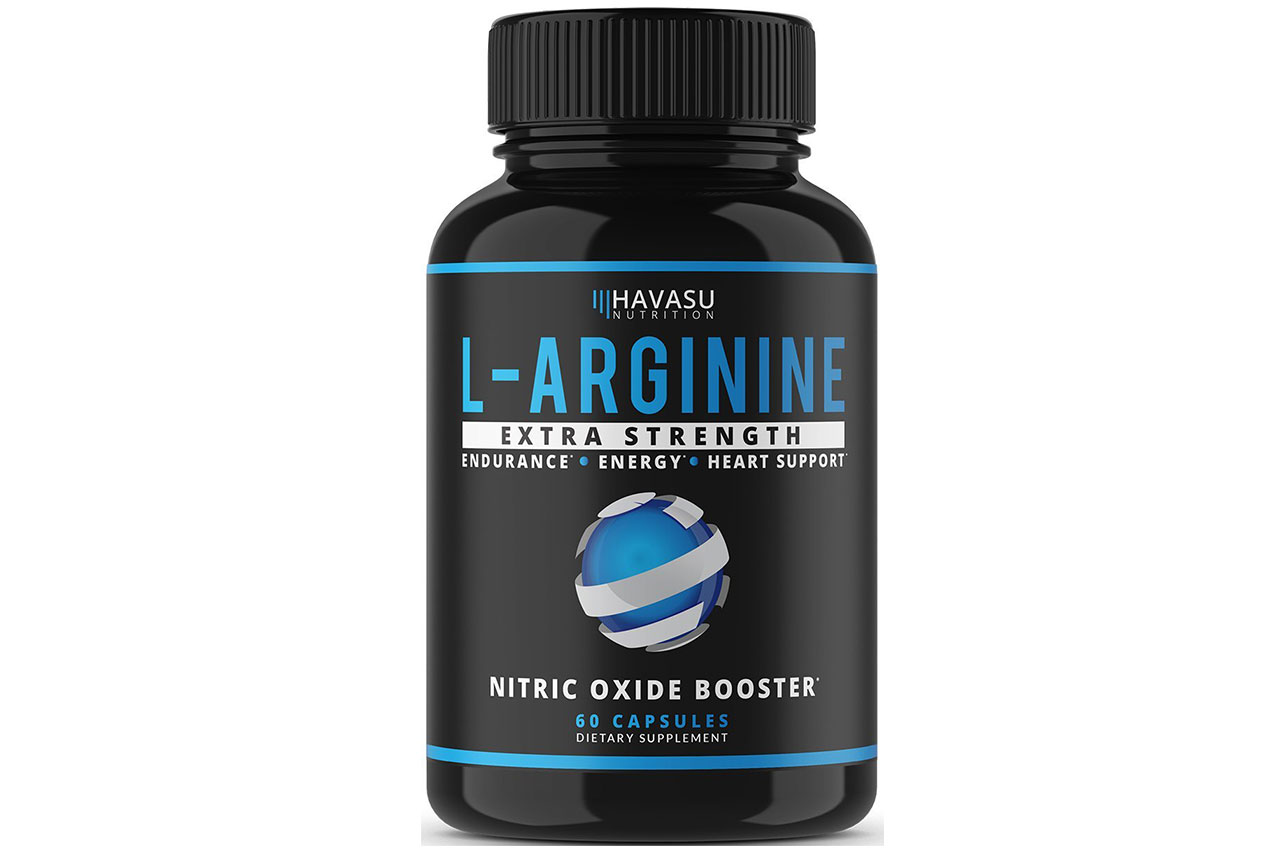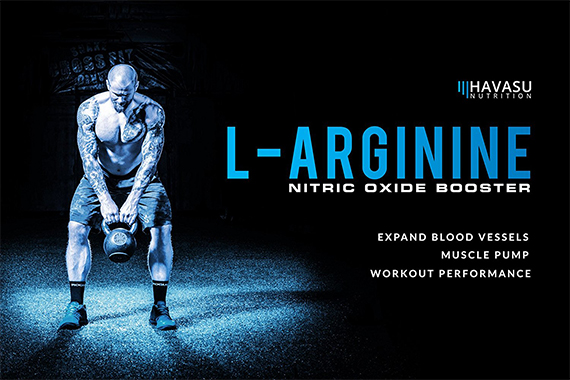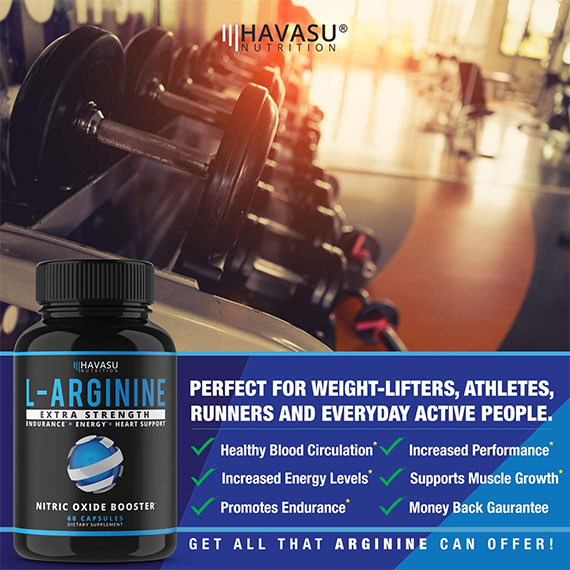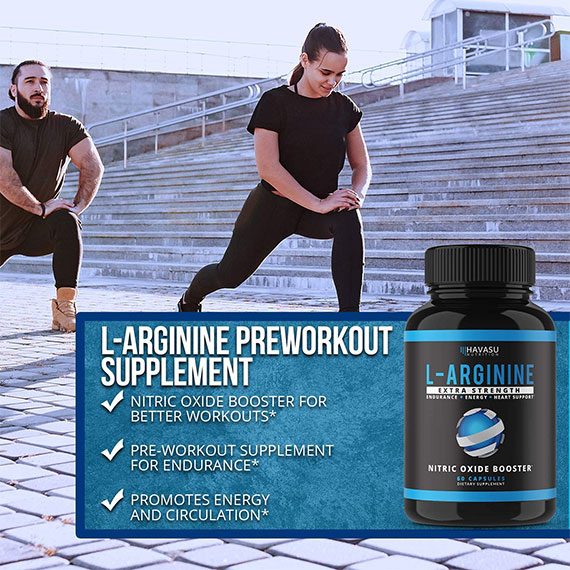L-Arginine, shortly arginine is a positive amino acid, classified as semi-essential and conditionally essential. Every fitness enthusiast has heard of this supplement, but few people know it neutralizes the free radicals.
What is L-Arginine?
Usually the organism synthesizes sufficient amounts of arginine to meet its needs. However, there are some cases in which this is not correct. L-Arginine is an essential amino acid for children. Under stressful conditions like trauma, burns, inflammations, etc., arginine becomes an essential amino acid for the organism, making it important to get enough of the substance, through food or supplements.
How is arginine produced?
L-Arginine is produced via fermentation, with the help of the bacteria called Corynebacterium, Bacillus, Serratia, Escherichia coli.
Basic physiological effect of arginine
It is involved in hypertrophy processes, as it is a part of the content in protein.
Optimal doses and way of intake
As a supplement, L-Arginine is recommended in doses from 4 to 15 grams daily. People with cardiac abnormalities should consult a doctor before taking this supplement. As there is no data about the dangers of arginine, the best option when taking it would be to start off with a lower daily dose for the first week.
During this time, you will be taking any effects/side effects into account and increase doses accordingly, as long as there are no side effects.
Possible side effects of arginine
If taken excessively, it is possible that side effects like diarrhea and nausea occur. Arginine should be carefully taken if you are taking prescription drugs like ibuprofen and organic nitrates. If you’re taking Yohimbine, you should consider the fact that arginine strengthens the effects of it.
Why take arginine?
Every person needs a sufficient amount of arginine, as groups of people who need more of it are growing up children, athletes, elderly people and overweight people. For athletes, arginine may significantly strengthen the immune system, which would allow them to train better, harder and avoid overtraining.
Steroid users may also get benefits of additional supplementation with arginine, as these are the exact people who often have increased levels of bad cholesterol- A condition which is improved with L-Arginine intake. Overweight individuals, or athletes who recover from trauma, along males with erectile problems may also feel significant physical improvement with arginine intake.
Other physiological effects of arginine
Even when it is a non-essential amino acid for the organism, arginine has many other physiological effects, because:
- It stimulates the human growth hormone release, along with the production of prolactin from the hypophysis, glucagon and insulin from the pancreas, when taken in high doses.
- L-Arginine neutralizes ammonia, which forms during the degradation of amino acids.
- Is a predecessor of nitric oxide production, creatine, L-glutamate, L-Proline, L-Ornithine, polyamines and immune system modulators like tuftsin.
- It neutralizes free radicals
- It widens the blood vessels (vasodilation)
- Is a glycogenic amino acid- It can be transformed into glucose and glycogen if the body needs it or can even be degraded to release energy.
- It helps regulation of sodium.
- It significantly increases the amount of white blood cells, which naturally destroy necrotic and cancer cells in the organism.
How is L-Arginine metabolized in the organism?
After the food is digested, arginine is absorbed by the small intestines, and through active transport it reaches the enterocytes, as a part of it is metabolized in them. The rest of the metabolized arginine, is then transported to the liver, where again, another part is metabolized.
What’s left then goes into the big blood-flow circle, where it is distributed to the different tissues in the body. The highest arginine concentration is in the blood plasma, observed 1-2 hours after eating, or supplementing with this substance.
Which foods are rich in arginine?
The main L-Arginine sources are plant and animal foods. Vegetable juices and fermented foods like soy cheese and yoghurt contain some free arginine. Soy and other plant products are richer in arginine, compared to animal products, which are richer in lysine.
It is considered that partly, soy protein’s cholesterol-lowering properties are due to the high arginine content. Arginine is widely found in nuts and seeds, as well as raisins and chocolate. Overall, if your nutrition is in check, you can supplement with arginine and make use of its benefits which include- Stimulation of hormones, vasodilation, free radical neutralization, meeting energy needs, sodium regulation, etc.
Supplementing this substance should be especially considered, if your organism conditionally requires it (trauma, burns, inflammation, low sex-drive, etc.) However, as we mention in every other supplement article, the intake of this substance should be moderate and non-excessive, in order to avoid undesired side effects like stomach-ache, diarrhea and nausea.
MeanMuscles Recommendation: Extra Strength L-Arginine
Extra Strength L Arginine
1200mg Nitric Oxide Supplement for Muscle Growth, Vascularity & Energy – Powerful No Booster with L-Citrulline & Essential Amino Acids to Train Longer & Harder





